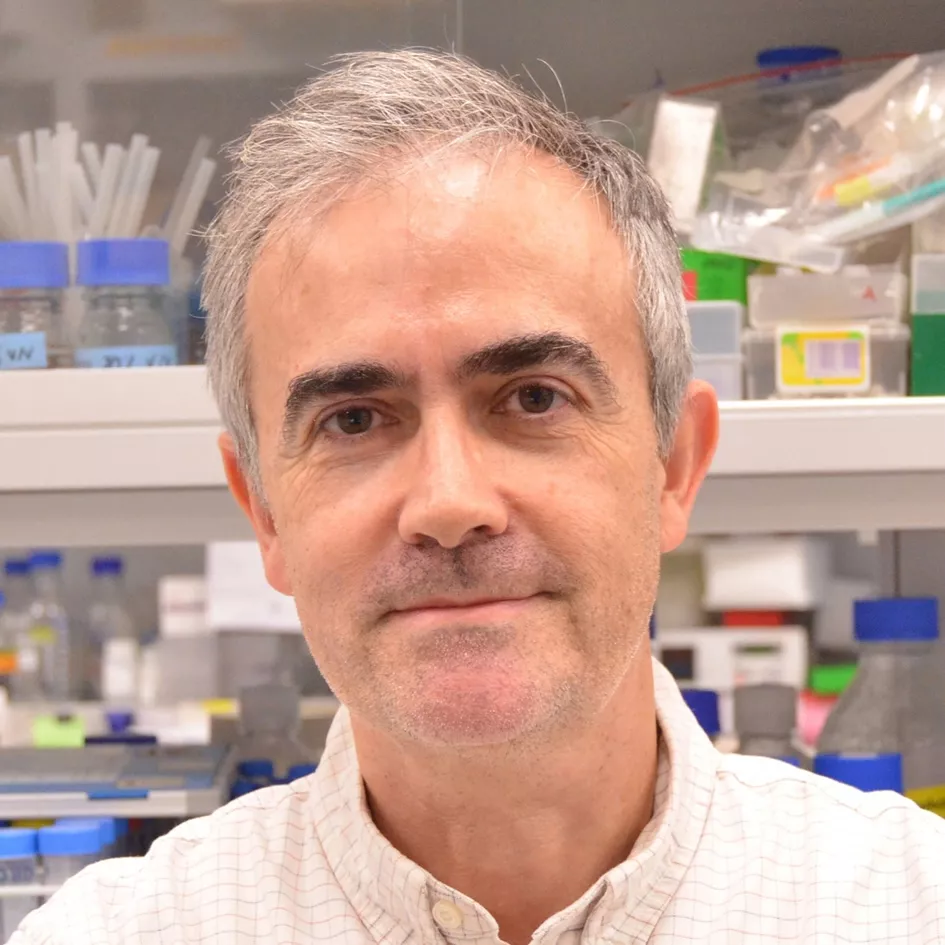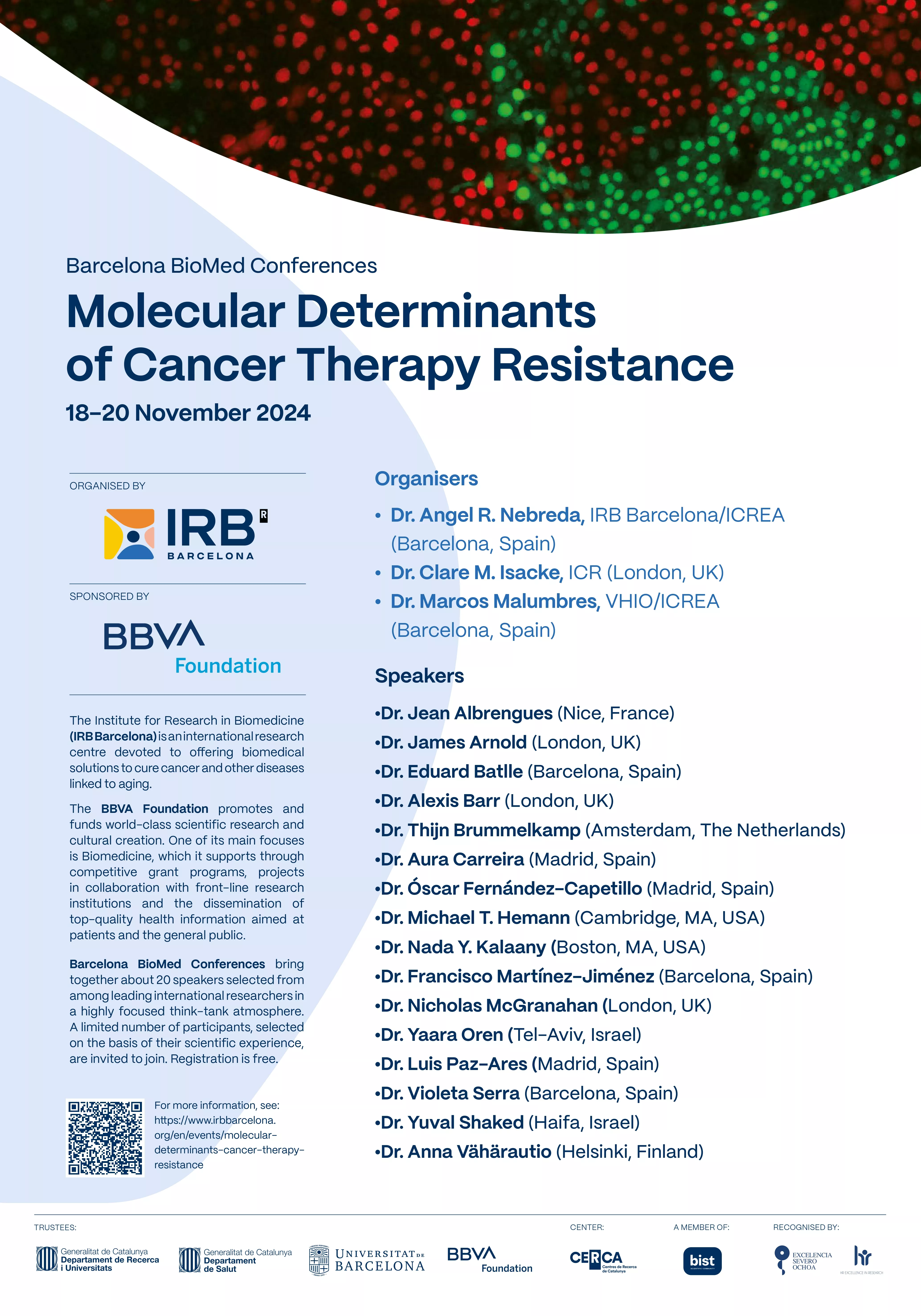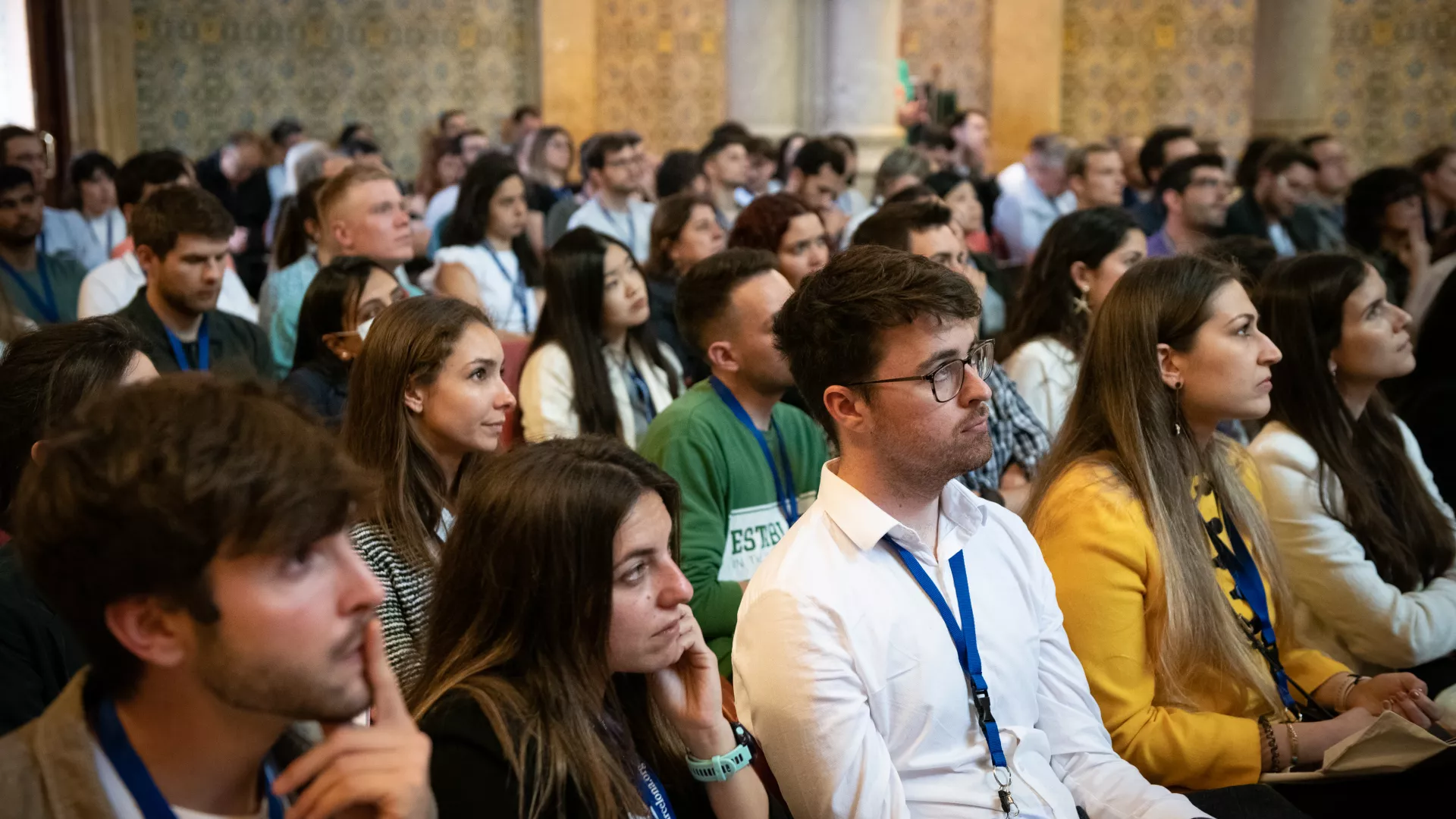Targeting tumor cell signaling and proliferation is a major strategy in classical and novel cancer therapies. Multiple cytotoxic and targeted drugs aim to prevent cancer cell proliferation or to eliminate cells undergoing DNA replication or mitosis. Despite the initial success of these strategies, resistance mechanisms are common, especially in patients with metastatic disease. Beyond cancer cell autonomous mechanisms, there is good evidence that cells from the tumor stroma can also contribute to therapy resistance.
This 42nd edition of the Biomed conferences will bring basic and translational scientists together with clinicians to discuss the latest findings on how tumors respond to therapies and develop resistance, as well the challenges of monitoring therapy resistance in the clinic and finding effective therapeutic strategies.
Topics will include mechanistic studies, genetic analysis, evolutionary dynamics and the contribution of the tumor microenvironment, as well as new approaches to monitoring and tackling therapy resistance in the clinic. We strive to create a highly focused think‐tank atmosphere for a select group of attendees to concentrate on the challenges of understanding resistance mechanisms and finding novel therapeutic strategies.
Presentation
Conference organizers

Dr. Angel R. Nebreda
IRB Barcelona/ICREA
Barcelona, Spain

Dr. Clare M. Isacke
ICR
London, UK

Dr. Marcos Malumbres
VHIO/ICREA
Barcelona, Spain
There is no registration fee for this conference, but the number of participants is limited, with a number of seats saved for IRB Barcelona alumni. Previous registration is required.
Priority will be given to those who submit the highest quality abstracts for short talks or posters and the order of registration will be considered.
Abstracts should include a title, authors, affiliations, summary (max 250 words) and references
REGISTRATION DEADLINE: 1 OCTOBER, 2024
(Note: Any issue about the registration or abstract, please contact: meritxell.gavalda@irbbarcelona.org)
Programme
Monday, 18 November
8.30 Registration
9.00 Welcome by Dr. Francesc Posas (IRB Barcelona, Director) and organizers (Dr. Angel R. Nebreda, Dr. Clare M. Isacke and Dr. Marcos Malumbres)
Session I: Mechanisms of resistance to chemotherapy and targeted therapies (I)
Chair: Dr. Clare M. Isacke, ICR (London, UK)
9.15 Mechanisms of resistance to PARP inhibition in breast cancer
Dr. Violeta Serra, VHIO (Barcelona, Spain)
9.45 Not all BRCA2 variants are created equal with respect to PARP inhibitor sensitivity and resistance
Dr. Aura Carreira, CBMSO (Madrid, Spain)
10.15 Short talk 1: Increased expression of ABCG2 (BCRP) promotes adaptive resistance to niraparib in novel clinically relevant models of treatment resistant ovarian cancer
Caitlin Macdonald, University of Dundee (Dundee, UK)
10.30 - 11.30 Coffee break and poster session
11.30 Quiescence as a mechanism of resistance to CDK4/6 inhibitors
Dr. Alexis Barr, MRC London Institute of Medical Sciences (London, UK)
12.00 Cell cycle rewiring as a mechanism of resistance to CDK-targeted therapies
Dr. Marcos Malumbres, VHIO/ICREA (Barcelona, Spain)
12.30 Short talk 2: CDK4 Inhibition Modulates Apoptosis Resistance and Metabolic Responsiveness in Triple-Negative Breast Cancer Cells
Dr. Lluis Fajas, University of Lausanne (Lausanne, Switzerland)
12.45 Short talk 3: High-throughput Identification of Novel Modulators of the ALT Pathway
Dr. Travis H. Stracker, NCI (Bethesda, MD, USA)
13.00 Short talk 4: Loss of SLFN11 confers replication stress tolerance in ATRX deficient ALT cancers
Dr. Sandra Segura-Bayona, The Francis Crick Institute (London, UK)
13.15 - 14.45 Lunch and poster session
Session II: Mechanisms of resistance to chemotherapy and targeted therapies (II)
Chair: Dr. Alexis Barr, MRC London Institute of Medical Sciences (London, UK)
14.45 Exploring tumor vulnerabilities by targeting stress kinase signaling
Dr. Angel R. Nebreda, IRB Barcelona/ICREA (Barcelona, Spain)
15.15 Short talk 5: Activation of the Integrated Stress Response to overcome multidrug resistance in cancer therapy
Jorge Mota-Pino, CNIO (Madrid, Spain)
15.30 Short talk 6: Mechanical stress promotes chemotherapy resistance through autophagy activation in pancreatic cancer
Dr. Maria Kalli, University of Cyprus (Nicosia, Cyprus)
15.45 - 16.30 Coffe break and poster session
16.30 The one-two-punch approach in cancer therapy. Trying to discover the second punch
Dr. Óscar Fernández-Capetillo, CNIO (Madrid, Spain)
17.00 Short talk 7: EZH2 Inhibitors Create a Dependency on YAP for Survival in HER2+ Breast Cancers
Dr. Naiara Perurena, Brigham and Women's Hospital and Harvard Medical School (Boston, MA, USA)
17.15 Short talk 8: LARP1-Mediated Drug Tolerance in Colorectal Cancer: A Non-Genetic Mechanism Underlying Chemoresistance and Tumor Relapse
Dr. Pedro Fuentes, IDIBELL (Barcelona, Spain)
17.30 Metabolic challenges and therapeutic opportunities in pancreatic cancer
Dr. Nada Y. Kalaany, Harvard Medical School- Boston Children's Hospital (Boston, MA, USA)
18.00 End of session
Tuesday, 19 November
Session III: Tumor cell non-autonomous mechanisms in therapy resistance
Chair: Angel R. Nebreda, IRB Barcelona/ICREA (Barcelona, Spain)
9.00 Targeting the tumour microenvironment
Dr. Clare M. Isacke, ICR (London, UK)
9.30 Understanding Mechanisms of Microenvironment-Mediated Therapy Resistance
Dr. Michael T. Hemann, Koch Institute for Integrative Cancer Research at MIT (Cambridge, MA, USA)
10.00 Short talk 9: A TGFβ-enriched senescent secretome triggered by platinum therapy promotes lung and ovarian cancer resistance
Dr. Daniel Muñoz-Espín, Early Cancer Institute, University of Cambridge (Cambridge, UK)
10.15 - 11.15 Coffee break and poster session
11.15 Perivascular macrophages influence the response to chemotherapeutics in cancer
Dr. James Arnold, King's College London (London, UK)
11.45 Immune cells induced ECM remodeling and their clinical implications
Dr. Yuval Shaked, Technion- Israel Institute of Technology (Haifa, Israel)
12.15 Short talk 10: Apoptotic protection in therapy-induced senescent melanoma cells is mediated through BCL-xL binding to BAK
Dr. Joan Montero, UB (Barcelona, Spain)
12.30 Short talk 11: Coordinated fragmentation confers functional properties to senescent cells
Dr. Bill Keyes, IGBMC (Strasbourg, France)
12.45 - 14.30 Lunch and poster session
14.30 Neutrophil extracellular traps formed during chemotherapy confer treatment resistance via TGF-β activation
Dr. Jean Albrengues, IRCAN (Nice, France)
15.00 Identifying alternative pathways for important cellular processes through genetics
Dr. Thijn Brummelkamp, NKI (Amsterdam, The Netherlands)
15.30 Short talk 12: Osmotic stress as a modulator of the response to microtubule-based therapies
Dr. Guillermo de Cárcer, IIBM-CSIC (Madrid, Spain)
15.45 - 16.30 Coffee break and poster session
Session IV: Cell plasticity and Evolutionary dynamics
Chair: Dr. Óscar Fernández-Capetillo, CNIO (Madrid, Spain)
16.30 Therapy resistance and tumor cell plasticity in colorectal cancer
Dr. Eduard Batlle, IRB Barcelona/ICREA (Barcelona, Spain)
17.00 Deciphering phenotypic diversity and lung cancer evolution
Dr. Nicholas McGranahan, UCL (London, UK)
17.30 Short talk 13: Cancer Cell Plasticity Defines Response to Immunotherapy in Cutaneous Squamous Cell Carcinoma
Dr. Laura Lorenzo-Sanz, IDIBELL (L’Hospitalet de Llobregat, Barcelona, Spain)
17.45 Short talk 14: The nucleolus connects inflammation and tumor cell plasticity in colorectal cancer
Dr. Joffrey Pelletier, IRB Barcelona (Barcelona, Spain)
18.00 End of session
Wednesday, 20 November
Session V: New approaches to monitoring and tackling therapy resistance in the clinic
Chair: Dr. Marcos Malumbres, VHIO/ICREA (Barcelona, Spain)
9.00 Immunogenomic determinants of late-stage tumors and the influence of anti-cancer therapies
Dr. Francisco Martínez-Jiménez, VHIO (Barcelona, Spain)
9.30 Short talk 15: Spatial transcriptomic analysis elucidates tissue patterns associated with PARP inhibitor resistance in high grade serous ovarian cancer patients
Kathleen Jane Imbach, Josep Carreras Leukaemia Research Institute (Badalona, Barcelona, Spain)
9.45 Short talk 16: Study and validation of the metabolic signature of extracellular vesicles as a prognostic and predictive marker in pancreatic cancer
Pilar Espiau-Romera, IIS Aragon, Hospital Universitario Miguel Servet (Zaragoza, Spain)
10.00 The day after the drug - investigating persister cells memory
Dr. Yaara Oren, TAUEX (Tel-Aviv, Israel)
10.30 - 11.30 Coffee break and poster session
11.30 Tracing back primed resistance in cancer
Dr. Anna Vähärautio, University of Helsinki (Helsinki, Finland)
12.00 How do we manage treatment resistance in Small Cell Lung Cancer in the clinic
Dr. Luis Paz-Ares, SEOM (Madrid, Spain)
12.30 Concluding remarks
12.45 End of conference
Venue
The BARCELONA BIOMED CONFERENCE Molecular Determinants of Cancer Therapy Resistance will be placed at the Casa Convalescència in the heart of Barcelona. Talks will take place in the Aula Magna.
Casa Convalescència
C/ Sant Antoni Maria Claret, 171
08041 Barcelona
Tel +34 934 335 000
https://www.uab.cat/casa-convalescencia/
How to reach the Casa Convalescència:
Underground
Yellow line (L4) - GUINARDÓ – HOSPITAL DE SANT PAU station
Blue line (L5) - SANT PAU – DOS DE MAIG station
By bus
Lines: 15, 19, 20, 45, 47, 50, 51, 92 and 192.
For the GPS
Introduce the following coordinates:
Latitude: 41.413702 (41° 24' 49.33'' N)
Longitude: 2.177482 (2° 10' 38.94'' E)
From the airport
* Train + Underground. At the RENFE station, take the train to Sants-Estació. Once there take the Underground's blue line (L5) till SANT PAU – DOS DE MAIG station.
* Bus + Underground. Outside the airport terminal, take the AEROBUS to Plaça Catalunya. Walk one corner till Plaça Urquinaona and take the Underground's yellow line (L4) to GUINARDÓ – HOSPITAL DE SANT PAU station.
Barcelona Metropolitan Transport webiste (with metro and bus maps)
Accomodation
Speakers will be lodged at the Hotel Catalonia Sagrada Familia
Aragó 577- 579
08026, Barcelona
Telephone: +34 93 245 89 05
www.cataloniahotels.com/en/
Other hotels
A list of additional hotels within walking distance of the Casa Convalescència can be found at: https://www.barcelona-tourist-guide.com/en/hotels/hotelmaps/eixample-right-barcelona-hotel.html
(The Casa Convalescència is located near the violet point 27/3 star). Rates will vary depending on choice of hotel and season. Please check with the hotel of your choice directly for the best offer.
Residences
Another possibility is the Lesseps Residence Hall, and is available for short-term stays.
Lesseps Residence Hall
Plaza Lesseps, 12 08023 Barcelona
View on map
Telephone: +34 933 941 600
e-mail: lesseps@resa.es
www.resa.es/en/city/barcelona
Participants registered for events in the Barcelona BioMed series should contact the hotels and residences directly to arrange bookings and payment.
Speakers

Dr. Jean Albrengues
IRCAN (Nice, France)

Dr. James Arnold
King's College London (London, UK)

Dr. Eduard Batlle
IRB Barcelona/ ICREA (Barcelona, Spain)

Dr. Alexis Barr
MRC London Institute of Medical Sciences (London, UK)

Dr. Thijn Brummelkamp NKI (Amsterdam, The Netherlands)

Dr. Aura Carreira
CBMSO (Madrid, Spain)

Dr. Oskar Fernandez-Capetillo
CNIO (Madrid, Spain)

Dr. Michael Hemann
Koch Institute for Integrative Cancer Research at MIT (Cambridge, MA, USA)

Dr. Nada Y. Kalaany
Harvard Medical School- Boston Children's Hospital (Boston, MA, USA)

Dr. Francisco Martínez-Jiménez VHIO (Barcelona, Spain)

Dr. Nicholas McGranahan
UCL (London, UK)

Dr. Yaara Oren
TAUEX (Tel-Aviv, Israel)

Dr. Luis Paz-Ares
SEOM (Madrid, Spain)

Dr. Violeta Serra
VHIO (Barcelona, Spain)

Dr. Yuval Shaked
Technion- Israel Institute of Technology (Haifa, Israel)

Dr. Anna Vähärautio
University of Helsinki (Helsinki, Finland)
Poster


